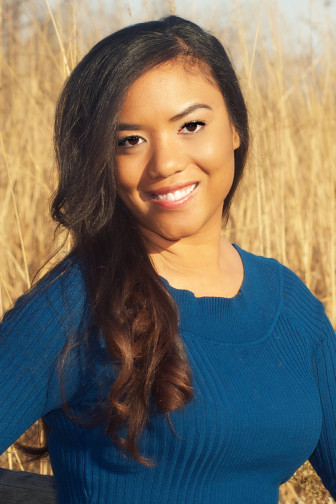 During the past five years as a Chicago resident, I have learned there are two parts to Chicago: the so-called “safe, rich” side and the “dangerous, poor” area. Drive through this city for 20 minutes, and I guarantee you will witness several great socioeconomic divides.
During the past five years as a Chicago resident, I have learned there are two parts to Chicago: the so-called “safe, rich” side and the “dangerous, poor” area. Drive through this city for 20 minutes, and I guarantee you will witness several great socioeconomic divides.
As a former AmeriCorps member, a service volunteer for disadvantaged youth and a freelance business writer in Chicago, I know all too well the sad reality of segregation.
That’s why Chad Posick’s opinion column, “Practice These Skills to Help End Police-Community Tragedies,” resonated with me. Chad’s candid explanation about the importance of empathy for black youth is spot on and couldn’t have been defined better. Harsh judgments, which lead to discrimination and hatred, are often formed when people forget or refuse to empathize.
When I first moved to Chicago, I was inundated by safety advice from neighbors. I recall statements such as, “Stay clear of this area because it’s ghetto — you might get shot or something.” I know they mean well, but frankly, I’m tired of it.
I’m tired of everyone skirting around the issues of inequality and avoiding any kind of hazard that comes along with making a difference. I’m not blind to the fact that violence is more prevalent in some areas than others, but we mustn’t let fear stop us from helping communities get out of crisis.
Before I came to this realization, I was ignorant about the harmful and exploitative effects of fear and negativity. About a year ago, I heard the term Chiraq in a catchy rap song by Nikki Minaj. I quickly realized that Chiraq is a blend word used to compare high-crime areas in Chicago to war-torn Iraq. Initially, I found the term to be quite clever and somewhat amusing. I thought nothing of it when I started to hear the term used everywhere — from casual office chitchat to newspaper headlines.
My ignorance came to a grinding halt when someone I knew was affected by gun violence. A few months ago, my friend’s boyfriend was killed in a drive-by shooting by gang members. The tragedy took a drastic emotional and financial toll on her and her children.
When I think of the word Chiraq in songs or movies, I get angry because I realize celebrities are gaining fame and fortune at the expense of my friend and others who’ve experienced the same plight. The violence in our city is serious and should not be celebrated or exploited.
Not only does the slang word exploit the plight of disadvantaged urban youth and families, it perpetuates the stigma of negativity in urban neighborhoods, tears down efforts to repair broken communities and discourages progression.
The word has been trending since at least 2012, when its definition was added to urbandictionary.com. Chiraq has been a popular song title choice for famous rap artists like Nikki Minaj, Montana of 300 and Meek Mill.
I almost cringed when I tuned into the local public radio station and heard about Spike Lee’s plans to direct a film entitled “Chiraq,” a comedy musical about gang violence in Chicago. According to the Internet Movie Database, “Chiraq” will be released in 2016.
I’d like to encourage everyone to avoid the film and stop using the word Chiraq and other words like it.
Even though the Civil Rights Act abolished laws requiring segregation more than a half-century ago, societal segregation remains prevalent. The reasons are multifaceted, but simply: Outsiders fear poor, minority communities. Most people will not go out of their way to patronize businesses in the part of town they fear. Members of these feared communities will remain deprived because they don’t have enough commercial resources to achieve and sustain financial growth, thus perpetuating the cycle of economic segregation.
So how do we change the perception of broken communities, end the isolation and thereby increase the resource flow into deprived neighborhoods and communities of color? I don’t claim to know how to completely solve this conundrum, but I think ditching hostile terms like Chiraq could reduce fear and positively impact the progress of disadvantaged areas.
This terrifying slang term exacerbates outsiders’ fear of Chicago. Fear, the main cause of inaction, will help lengthen the reign of segregation among the poorest communities in the city. Young people are especially vulnerable because socioeconomic segregation leads to disadvantages in education, nutritional resources and public safety.
For many youth, the slang term is revered like a badge of honor; however, it is not helpful to community growth. Instead of encouraging pride in Chiraq, we should dignify the youth and encourage them to revive and take pride in Chicago.
The voices of celebrities and media reporters have a strong impact on young people. Instead of exploiting the plight of some of our country’s most vulnerable youth, trendsetters like Spike Lee should be responsible with how they choose to illustrate broken communities.
I urge you to boycott the casual use of harmful terms like Chiraq and any forms of entertainment associated with it. Please go a step further and open up a dialogue about Chiraq with the youth you serve.
A great way to achieve an honest and open discussion is to ask them about their feelings about Hollywood’s portrayal on our city. You will probably get mixed responses.
After you listen to their opinions, don’t shy away from letting them know your stance on the matter. Ask and encourage questions; don’t become frustrated if they don’t agree with you. The objective is not to preach but to plant a seed of knowledge and be there to help facilitate their growth.
Stacy Lambert is a former AmeriCorps member, a faith-based youth-service volunteer and a freelance writer in Chicago whose work has been published in business trade publications Useful Social Media and Incite Group.

























